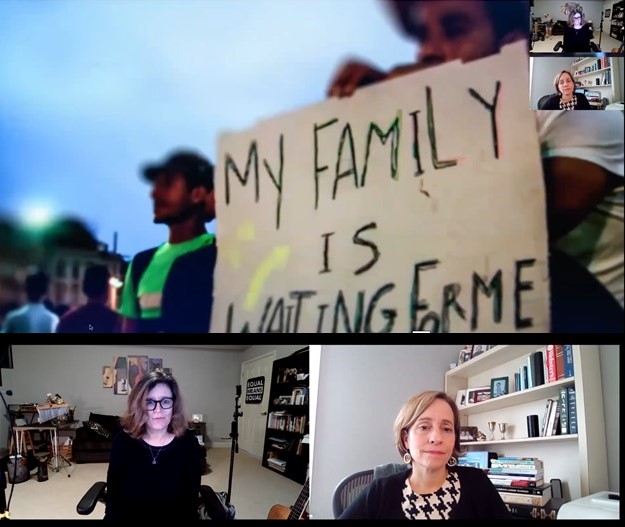Refugee Shabbat & praying for the children of our world
We take this Shabbat to think about those globally who are seeking a place of refuge. Why did HIAS (the Jewish refugee resettlement agency) choose this day for Refugee Shabbat?
Perhaps because Passover is quickly approaching and we need to think about the ways in which we can incorporate the issue of refugees into our seders. What are the four questions we have about refugee resettlement and about the asylum system and about those seeking to come to America or who are in America seeking to make this their home?
Perhaps because as part of the Shabbat Kiddush, we lift our cups and say that the weekly Sabbath is zecher l’tziat Mitzrayim – a reminder of our Exodus from Egypt. Just as we have the freedom to rest, so do we need to fight for freedom for others.
Or perhaps, Refugee Shabbat comes now because it is two weeks after Shabbat Zachor, when we remember Amalek, who sought to destroy the Israelites immediately after escaping Egypt. Amalek became the prototypical arch-enemy of the Jewish people. Haman and Hitler, who desired to annihilate the Jewish people, were cut from the same cloth as Amalek. Amalek represents anyone who hates the Jewish people.
On this Refugee Shabbat, take time to remember your own immigration story. My father was a Holocaust refugee who arrived at Ellis Island on August 1, 1938. Beth’s grandparents came to America as part of the massive Eastern European wave of Jewish immigrants arriving on our shores from 1880 to 1920. HIAS, formally known as the Hebrew Immigrant Aid Society, was created in 1881, to serve the Jewish people who had been wanderers all over the globe.
In Beth’s words, “What is different about the American experience is that we have become successful enough, settled enough, assimilated enough in America that we can be the helpers. Instead of only turning inward and helping our own enter this country and get integrated, we now do what the Torah asks us to do – to protect the stranger, to honor the stranger, to remember our journey, and help others on theirs. It’s not the work of one week. It’s the work of a lifetime.”
As we bless our own children around the Sabbath table, we pray for those children who have been separated from their parents by our own country at our own border. Here’s are Beth’s words of prayer through song for the more than 600 children who remain separated from their parents and for the children globally who are fleeing persecution and living in refugee camps:
So I pray that you’re strong
And I pray that you’re brave
And I pray you hang on through the night
There is light at the dawn of each day
And I pray that we’re strong
And I pray that we’re brave
And I pray we hang on every night
We will fight to bring a new day
What can you today, on this Refugee Shabbat, and what can you do tomorrow to bring a new day for the children of our world who are refugees? How can we move from the place of despair and the place of prayer to action?
Click here to listen to our conversation that offers some answers.



No Comments